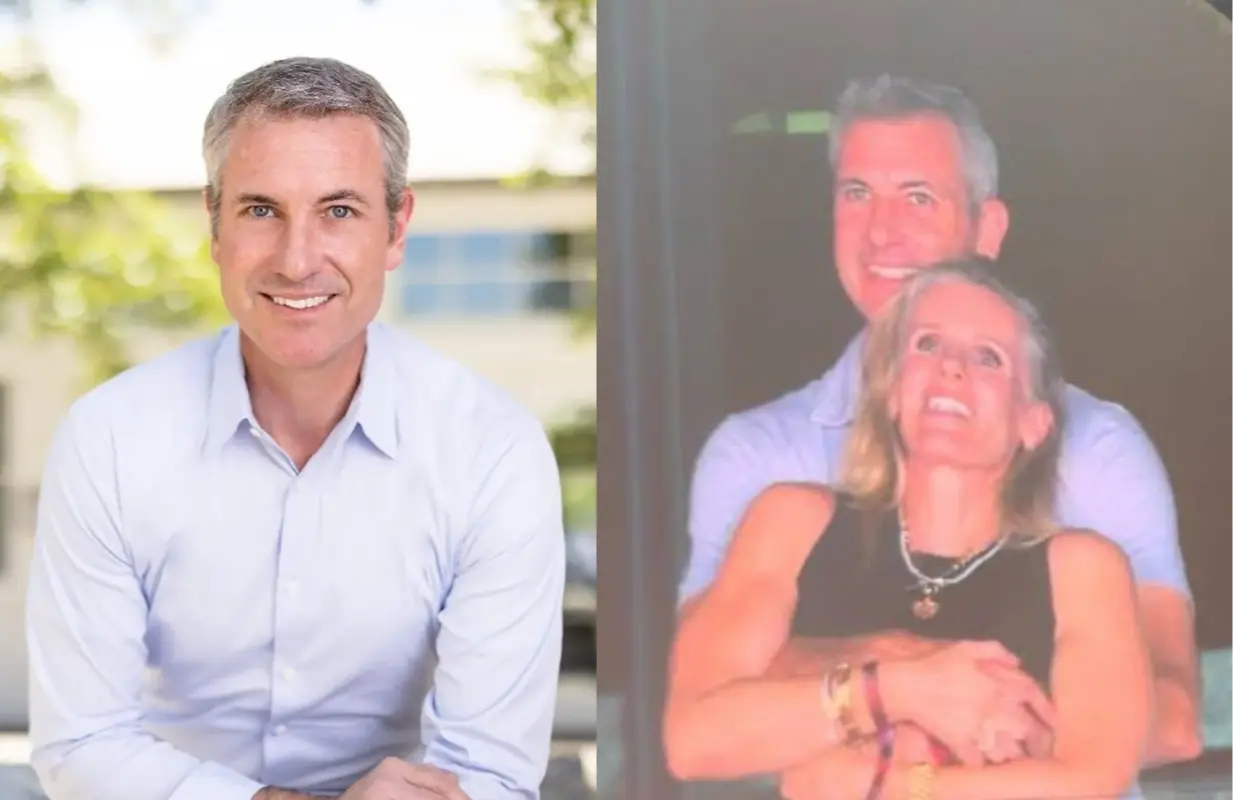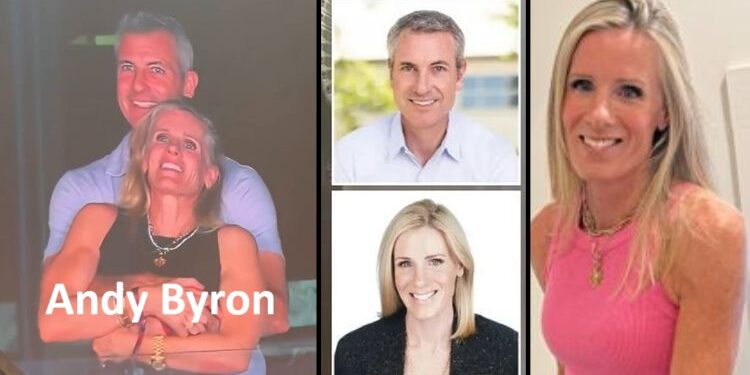When it comes to leadership in the fast-paced world of technology, few stories have captured public attention quite like that of Andy Byron. Once celebrated as a rising star in Silicon Valley’s leadership circles, Andy Byron name has recently become synonymous with both remarkable professional success and a very public personal scandal. But beyond the headlines and viral videos, there’s a layered story about ambition, corporate growth, accountability, and how one misstep can shift the trajectory of a career.
This article takes a closer look at who Andy Byron really is — from his early professional milestones to his leadership at Astronomer, the company that pushed him into prominence, and the infamous “kiss-cam” controversy that changed everything. More importantly, it explores what his story can teach us about leadership, reputation, and the fine balance between personal choices and public image in today’s hyperconnected world.
The Making of Andy Byron: From Humble Beginnings to the Boardroom
Every successful executive has a backstory, and Andy Byron’s is no exception. Before becoming a recognizable name in the tech industry, he was simply a Massachusetts native with big ambitions. He studied Political Science at Providence College, but his real education came from years spent in the business trenches — learning, adapting, and climbing his way up through some of the most competitive sectors in the corporate world.
In the early stages of his career, Andy Byron didn’t immediately dive into tech. Like many ambitious graduates of the late ‘90s, he explored several paths before finding his footing in the rapidly evolving digital landscape. Over time, he developed a reputation for being both analytical and personable — a leader who understood not just the mechanics of business growth but also the psychology of building teams that perform under pressure.
His professional résumé is impressive: President and COO at Fuze, a cloud-based communications company; Chief Revenue Officer at Cybereason, a cybersecurity firm; and later an executive role at Lacework, a major player in the cloud-security space. Each role added a new dimension to his leadership style — operational excellence, sales growth, and organizational strategy. These experiences eventually paved the way for what many saw as the pinnacle of his career: becoming CEO of Astronomer in 2023.
Leading Astronomer: Vision, Growth, and Big Bets

When Andy Byron stepped into the role of CEO at Astronomer, the company was already gaining momentum in the tech world. Astronomer’s primary focus was on DataOps — helping companies automate, manage, and scale their data workflows, largely through the open-source tool Apache Airflow. It was a niche but critical segment of enterprise technology, and Andy Byron was the right leader at the right time.
Under his leadership, Astronomer secured a significant Series D funding round worth over $90 million, pushing the company’s valuation past the billion-dollar mark. His vision was simple but bold: make data infrastructure more accessible, reliable, and automated for every organization. He often emphasized that in the modern economy, “data is oxygen,” and Astronomer’s goal was to make sure every business could breathe freely.
Inside the company, Andy Byron was known as both hands-on and demanding. Colleagues described him as driven, strategic, and intensely focused on results. He encouraged innovation and collaboration but also expected high performance. For a while, that culture worked. Astronomer expanded its client base, grew internationally, and became a respected name in enterprise data management.
But with rapid growth came growing pressure — not just on the business, but on its leaders. And it’s here that Andy Byron story began to take a sharp and unexpected turn.
The Kiss-Cam Incident: When Private Choices Go Public
In July 2025, Andy Byron’s name exploded across social media — but not for a new product launch or a funding milestone. Instead, a seemingly innocent Coldplay concert at Gillette Stadium turned into one of the most talked-about viral moments of the year.
During the concert, a stadium “kiss-cam” landed on Andy Byron and Kristin Cabot, Astronomer’s Chief People Officer. The two appeared visibly close, and when they realized they were being broadcast on the big screen, they quickly turned away — but the moment was already captured. Within hours, clips of the incident were all over TikTok, Instagram, and X (formerly Twitter), with millions of views and even commentary from the band’s frontman, Chris Martin, who joked onstage about the couple’s awkward reaction.
The internet quickly discovered who they were. And the story took on new layers when it became clear that Andy Byron was married, and that Cabot reported directly to him in the corporate hierarchy. What might have been dismissed as a personal matter soon became a professional crisis. Questions about ethics, workplace relationships, and leadership integrity began swirling across the media.
Within days, Astronomer’s board of directors launched an internal investigation. Andy Byron was placed on leave and ultimately resigned from his position as CEO. Cabot followed suit shortly after.
Fallout and Reflection: Reputation, Responsibility, and the Power of Perception
The speed and scale of the fallout were staggering. In the world of corporate leadership, perception is reality — and in Andy Byron case, the perception of impropriety was enough to end his tenure almost overnight.
What made the situation particularly damaging was the power dynamic between Andy Byron and Cabot. As CEO and Chief People Officer, their relationship raised legitimate concerns about fairness, professionalism, and company culture. It wasn’t simply a case of “private lives becoming public” — it was about potential conflicts of interest, favoritism, and the message such behavior sends to employees.
For Astronomer, the scandal was an unwanted distraction at a critical time. Investors, partners, and employees needed reassurance that leadership was stable and values-driven. For Andy Byron, the personal consequences were even more severe. Reports surfaced that his marriage had fallen apart, and he retreated from the public eye.
But the broader lesson here goes beyond one man’s mistake. In today’s world — where every smartphone is a camera and every moment can be uploaded in seconds — leaders have to live with a new level of accountability. Privacy, in many ways, has become a luxury that public figures can no longer afford.
The Broader Lessons: What Andy Byron’s Story Teaches Us
While the Andy Byron saga has been dissected endlessly online, it offers some genuine lessons for anyone navigating leadership in the digital age.
First, it shows that leadership is no longer confined to boardrooms. The actions of a CEO are now part of the company’s brand. A leader’s personal conduct directly influences how employees and the public view the business. Authenticity, integrity, and self-awareness aren’t just moral virtues — they’re strategic assets.
Second, the situation underscores the importance of ethical boundaries. Romantic relationships in the workplace aren’t new, but when they involve executives and direct reports, they introduce risks that can destabilize entire organizations. Transparent policies, clear reporting lines, and accountability structures are not optional — they’re essential.
Third, the story demonstrates how fragile reputation can be in the social media era. Years of hard work, innovation, and leadership can be overshadowed by a single viral moment. It’s a harsh reality, but one that every modern professional has to understand: in a world where everything is documented, discretion matters.
What’s Next for Andy Byron?
Since his resignation, Andy Byron has largely remained silent. There have been reports of him spending time away from the public eye, focusing on family and personal recovery. Whether he attempts a professional comeback or chooses a quieter path remains to be seen.
Many industry observers believe he still has the skills and experience to rebuild his career — perhaps in advisory roles or behind-the-scenes consulting. Redemption stories aren’t uncommon in Silicon Valley; after all, the culture of innovation is also one of resilience and second chances.
If Byron does return to the public arena, it will likely be with a renewed awareness of the weight that leadership carries. The world will be watching — not just his professional decisions, but how he chooses to rebuild trust.
Conclusion: The Legacy of Andy Byron
Andy Byron’s journey is complex — a mix of ambition, achievement, and avoidable downfall. It’s a reminder that leadership today demands more than vision and performance. It demands integrity, emotional intelligence, and awareness that every choice, public or private, carries consequences.
In many ways, his story mirrors the broader tension of our digital age: the collision of personal freedom and public responsibility. For aspiring leaders, executives, and entrepreneurs, Andy Byron’s story is more than just gossip or scandal — it’s a real-world case study in how quickly success can unravel when ethics and perception collide.
Ultimately, the tale of Andy Byron isn’t just about one man’s mistake. It’s about the universal challenge of leadership in an age where the line between private and public has all but disappeared. And as much as his name became a headline, it also became a cautionary lesson — one that every leader would be wise to remember.

















































































